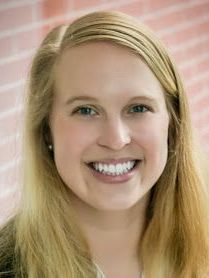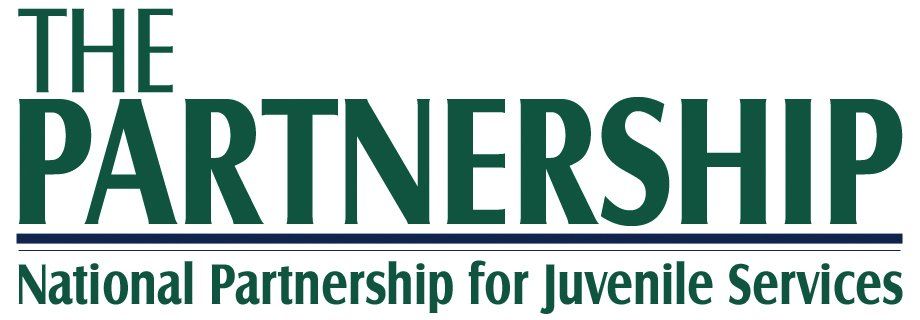Read Our Employee Interview
Juvenile Justice Spotlight

Molly Bloom
Principal of Midlands Evaluation Center and Coastal Evaluation Center
Agency: South Carolina Department of Juvenile Justice
Office Location: Columbia, South Carolina
1. What is it that attracted you to the Juvenile Justice field?
“Working in Baltimore City Schools did. I taught students with emotional disabilities who had a lot of behavioral issues. People in my school were happy that my students enjoyed being, and staying, in my class. Unfortunately, a lot of these students were also being arrested. I also tutored for Goucher College’s Prison Education Program. I went on to Start my PhD program in Special Education (almost done, LOL), working with a different population of students but ultimately realized I missed my kids with emotional challenges which had me reaching out to SC DJJ and getting an opportunity to teach Science through DJJ. ”
2. What about your job that gets you out of bed in the morning?
“The kids. I love hanging out with the kids. In other jobs, I was twice removed from kids, though I still saw them, but now I get to work and interact with them every day. For one child in particular, I’m on the hunt to find a complete set of Harry Potter books because he loves reading that genre.
I also get up for each of my staffs. Both of them are awesome and I love helping them.”
3. With your work with the Department of Juvenile Justice, what exciting changes do you see happening?
“In my current role, my whole job is to support my staff. And seeing how this is positively impacting the kids is really having a significant impact. It’s so cool building the positive culture we are, and watching it spread to our kids, staff, and security team.”
4. Who is your mentor(s) in the field? What is something that they taught you?
“My boss, Floyd Lyles, has been an incredible mentor to me. He allowed me to work part-time while I was in school and has created opportunities for me to grow with DJJ. As the superintendent, he’s really good at managing people. I call him with staff and student issues, and he always gives me the help and support I need.”
5. So, I've decided I'd like to make working in juvenile justice my life's work. What advice would you give somebody just starting out?
“To hang in there. It’s hard, and teaching in this setting is hard. I think it takes special people to be and stay in this type of role. You get to work with students who need you the most, but on the days when it’s hard, hang in there because the days that are great will really impact you in a wonderful way. It’s the coolest thing in the world because what you are doing makes a difference in their lives.”
6. I'm sure you've had many memorable experiences, but is there one that stands out as your most memorable?
“When I was teaching, there was a student with ADHD who hadn’t been coming to school because he was too rambunctious. I got him to commit to coming to school with the understanding that if he came, he’d earn the ability to watch these National Geographic shows together with me, something he really liked. I realized during this time that he had undiagnosed dyslexia. Having built that rapport with him really helped rebuild his understanding of the importance of school. Ultimately, he went on to tell others that I was his favorite teacher (chuckles).”
7. What words of wisdom do you find yourself consistently giving to those you work with in the Juvenile Justice system?
“Just a constant stream of joy and positivity is something I look to consistently spread to others. When I see these kids, it gives me genuine, pure, joy that I love to pass along to others.
I also feel listening and empowering others to utilize their strengths, which leads to great teamwork, is so important to pass along as well. I had a teacher leading an orientation for the start of this school year. He put together a PowerPoint presentation and kicked off the school year. He really led and set the tone for the school year, even among those that weren’t teachers or students. It brought him (and others) great joy and was something I could have never accomplished in the way that he did without listening and delegating to him.”
8. As you see it from your role as a principal, how can the current state of Juvenile Justice improve?
“I wish that our system was more rehabilitative and less punitive. At DJJ, we really don’t have much of a say in who comes here. Our facilities don’t have to look like prisons and while I know that some of the kids have done some bad things, I wish we could be better in this capacity.
Also, we can improve upon what happens to these kids once they leave us. They return to these horrific environments and then we wonder why they come back. Being more proactive than reactive would be helpful in helping reduce recidivism.”
9. What major contribution do you feel you have made in Juvenile Justice?
“I would like to think that I’ve helped students be more than they thought they could be. That I’ve given them some excitement around the idea and execution of educating them. Even if it’s only one kid, to know that I’ve added value to their life is such a great feeling.”
10. When you're away from work, what do you enjoy doing?
“I have three Australian Shepherds. My mom and I worked with an organization called, Australian Shepherd Forever. I also foster dogs on occasion. My boyfriend and I also enjoy working out and are both into true crimes, though he works in this field, and I enjoy watching the shows (which he doesn’t, LOL).”
